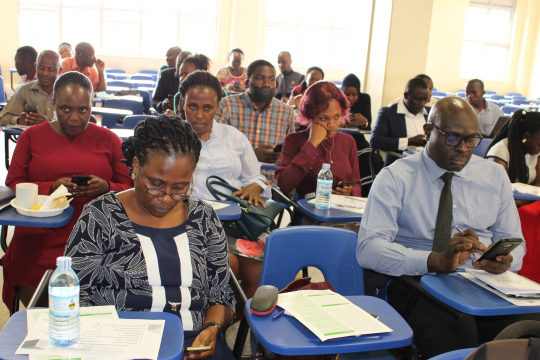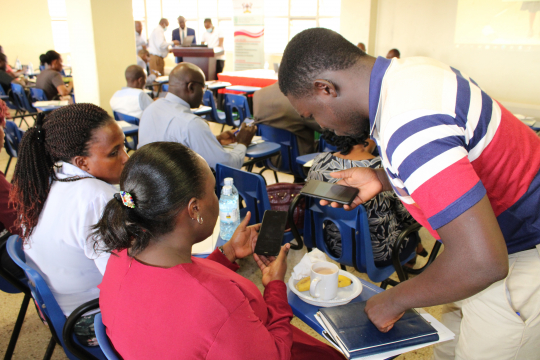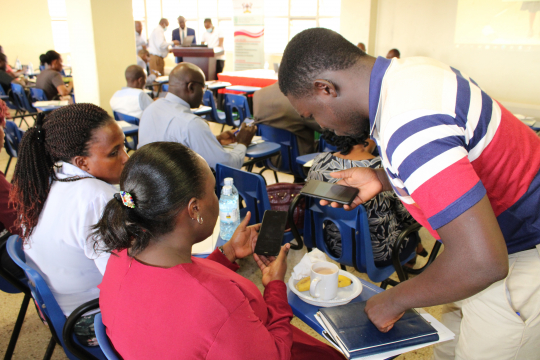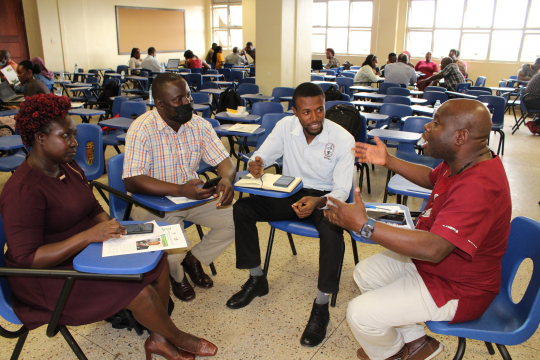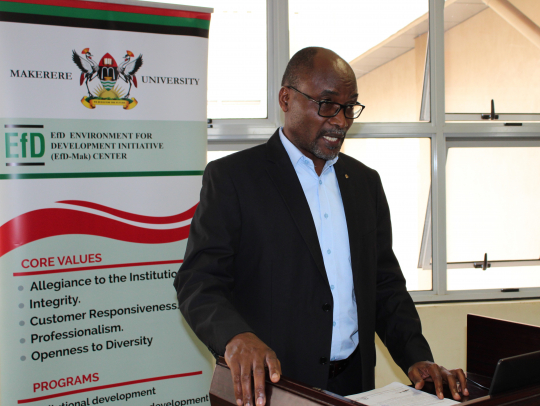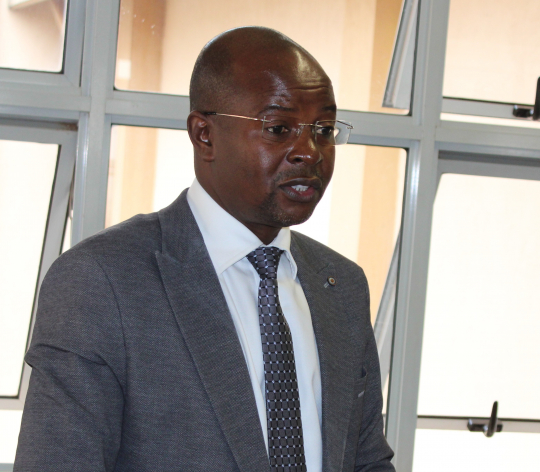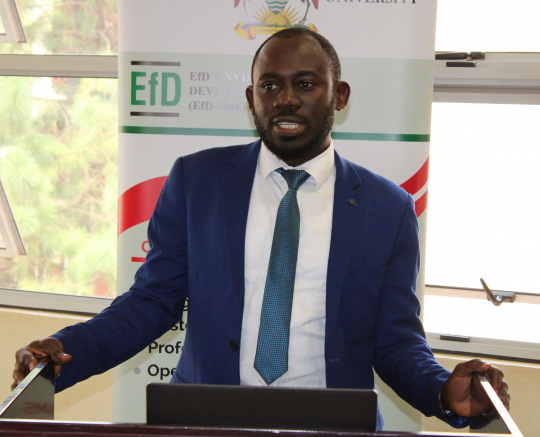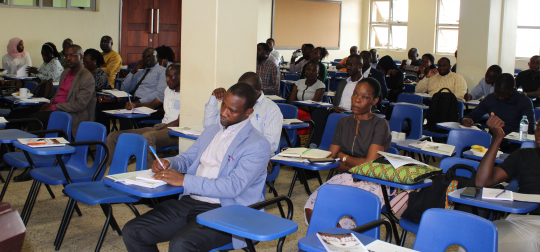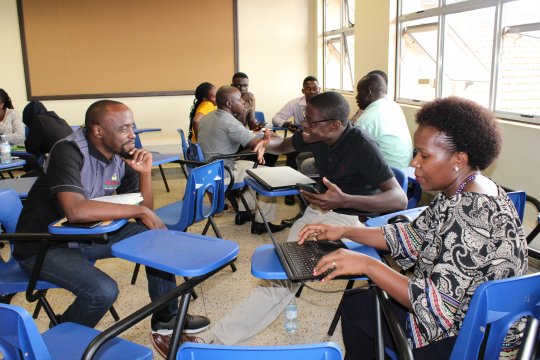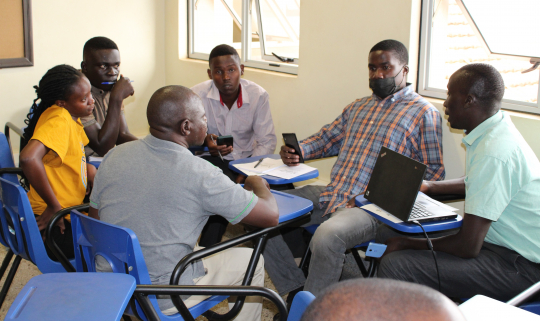Over 80 participants from the environment and natural resources sector including, senior civil servants, the academia, civil society organization, members of the public, and students convened at Makerere university to discuss and participate in a survey on opinions about policy instruments such as taxes, subsidies, and bans.
This stakeholder workshop held on 15th July, 2022 was part of the Inclusive Green Economy (IGE) capacity building program funded by Sida, implemented by EfD- Global Hub University of Gothenburg partnering with Kenya, Tanzania, Uganda, Ethiopia and Rwanda.
Participants were mainly concerned with getting the perceptions of stakeholders on the acceptability of IGE policy instruments and alternatives.
The purpose of the workshop was to increase the awareness of the current level of social acceptance in the country through the presentation of results from the population survey that was carried out among Ugandans last year 2021.
New knowledge regarding social acceptance among stakeholders was also collected through a short survey and discussions largely on three themes; Fossil fuel, Plastic pollution, and Forest loss.
Opinions from the population survey indicated low levels of social acceptance while stakeholder’s opinions indicated a high level of social acceptance of the policy instruments.
Opening the workshop, the Principal, College of Business and Management Sciences represented by Dr. Yawe Bruno, said the matters of greening the economy were not only central today, but at the center of Uganda’s development agenda clearly spelled out in the National Development Plan and Vision 2040 with many SDGs on this same issue.
He observed that for many years, Uganda has never experienced such unpredictable temperatures adding that those to live 30 -50years to come, may need fireplaces in their houses with different house architectural plans.
“We are reaping our fruits in regard to our managing of the environment. The guiding principle should be: can we nurture nature so that nature can nurture us? We are hiding our heads under the sun blaming the cyclic issues but wherever one comes from, one feature that shows that we have messed up with the environment is how long it takes to find firewood that has come down on its own In the villages, people worry about everything in the food chain from firewood and it is now worse with hiked prices,” Yawe explained.
The Director, EfD-Mak Centre Prof Edward Bbaale said, the centre is heavily involved in undertaking research in environmental economics to inform policy in the matter of improving the environment and natural resources.
The IGE program he added, targets senior civil servants and policymakers in the Environment and Natural Resources sector mainly the economists who undergo capacity building on the design and application of policy instruments.
Uganda’s IGE Policy engagement specialists Peter Babyenda said, they are training public servants in green issues to change their understanding and consider the environment while undertaking projects and decisions.
“A study was conducted last year among a randomly selected population in Uganda 10 cities. Today, we are discussing which alternatives can we come up with to get a win-win situation, and what to tell plastic manufacturers so that they run the business that at the same time protects the environment. For fossil fuels, is it time to start talking about electric motor vehicles? Babyenda said.
Babyenda reported that the low levels of social acceptance of the green instruments were mainly due to a lack of alternatives for fossil fuel, plastics, and cooking techniques coupled with the issue of affordability.
Participants speak out
IGE Fellow, Calysts Bikwasi Ndyomugabi, the Principal Economist and Ag. Commissioner at the Ministry of Finance Planning and Economic Development summarised the workshop.
“ We have been looking at the effects of the use of fossil fuels, forest use, and plastics and how best we can engage stakeholders in terms of acceptance of policy instruments so that they are regulated to mitigate the current challenges such as climate change arising out of destruction of environment, sensitization and capacity building gaps to enhance the green economy in Uganda and the region”.
Fred Onyai an IGE fellow from the National Environment Management Authority noted that although environmental policies exist there is continued forest loss, low acceptance and implementation.
“Greening the economy means we must come up with policies that are inclusive and where every stakeholder plays a role so that there is collective ownership, sustainability and acceptance and evaluation of the policies so that government does not own the process alone.
These policies must enhance environmental conservation vis a vis human livelihood and climate resilient because a green policy looks at conserving nature, ecosystem integrity and people must be able to withstand the shocks”, Onyai explained
Report by;
Jane Anyango
Communication Officer
